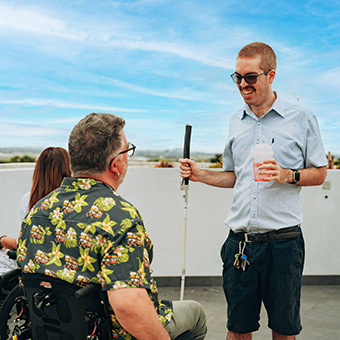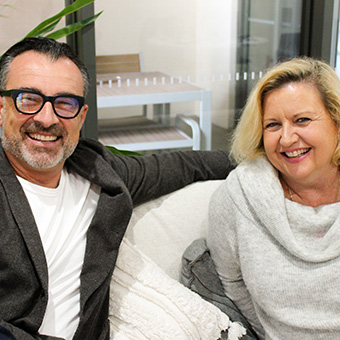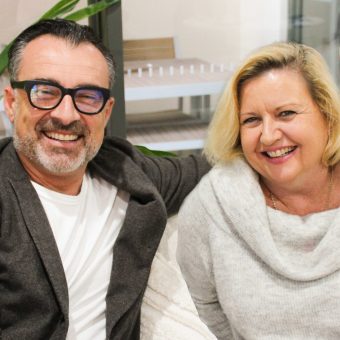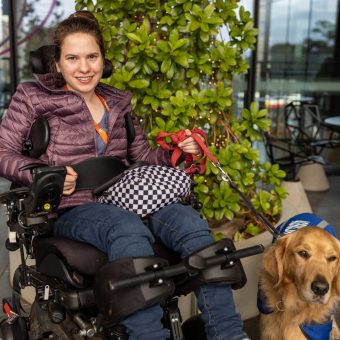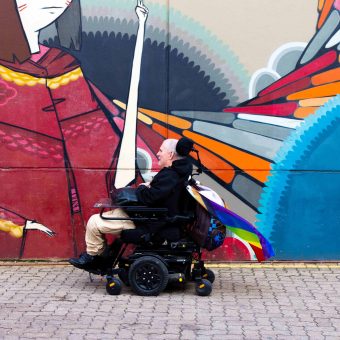Community Cooperatives are made up of its members – the people who share onsite disability supports. They do not however work exclusively from the shared support providers – be it the SDA provider or onsite support provider.
Community Cooperatives empower people to have increased choice and control over the supports they share. To achieve this, providers often receive feedback and/or requests for service provision that best suits the individuals in that particular Cooperative. These are an opportunity for providers to engage in continual improvement, and understand the preferences of that particular group of individuals.
Provider connection with the Cooperative
Cooperatives often take the opportunity when meeting to talk about what is and isn’t working in the supports they share. The group work to identify what we call ‘systemic’ experiences – meaning those that are experienced by more than one member.
Cooperatives may invite their provider to a Cooperative meeting to discuss particular topics. This can be a fantastic opportunity for Cooperative members and their provider to spend time talking together about what is and is not currently working, and understanding one another’s experiences in a facilitated environment.
Alternatively, Cooperative members can choose to have their facilitator support the communication of systemic experiences to providers on their behalf or to do so themselves.
Facilitators passing on Cooperative feedback
Many Cooperatives choose to have their facilitator escalate feedback on their behalf. It is the hope that over time, as the members build their confidence and skills, they shift toward doing so themselves. Many Cooperatives are early in this journey however, or appreciate the administrative support.
Where facilitators are used in this way, facilitators ensure they are committed to amplifying the members’ voices rather than overpowering them by
- Sharing their noted summaries with members to confirm members are happy with them before sharing with the provider;
- Providing these notes to the provider once the members consent;
- Meeting with the provider to give extra context, answer any questions, and offer support in identifying ways to address the feedback; and
- Minute meetings with the provider. Minutes are either automatically sent to the Cooperative members, or available on request (the coops choose this).
If the above consent process is not achievable for any reason, facilitators check their understanding and gain consent during the meeting instead.
Shared feedback is anonymized
Cooperative members often express apprehension or fear of sharing anything but appreciative and positive things about their providers. Due to historical experiences and/or an unfortunate sense of vulnerability, many fear impacts on their housing security or the supports they share.
This is the reason we so strongly believe in the independence of the facilitator, and the strict information management protocols between facilitators and providers. By doing so, we hope to enable members to feel confident to exercise their right to share their experiences with their facilitator.
To enable this sense of safety and confidence, facilitators anonymise all feedback to providers unless a member explicitly wishes to be named. This may be helpful for particular concerns to be addressed.
Responding to feedback
In our experience, the following are the best approach providers can have to feedback from their Cooperatives
- Being open and curious to understand feedback.
- If unsure of the best way to address feedback, ask the Cooperative what they’d like if they haven’t already said. Members are often enthusiastic and have lots of ideas they’re eager to share.
- Be open and transparent with the Cooperative. Not all requests can be met and working to find a suitable compromise is achievable.
- When making changes based on feedback, let the Cooperative know this is the reason! This gives members a sense of confidence that their efforts are being valued by the provider and having a real impact.
Learning together
The Community Cooperative model is new. The Pilot Project is giving us a fantastic opportunity to learn the best frameworks and approaches to ensuring the best possible outcomes.
We have learnt a lot so far about provider engagement, and look forward to sharing as these learning develops further in the second year of the Pilot.

